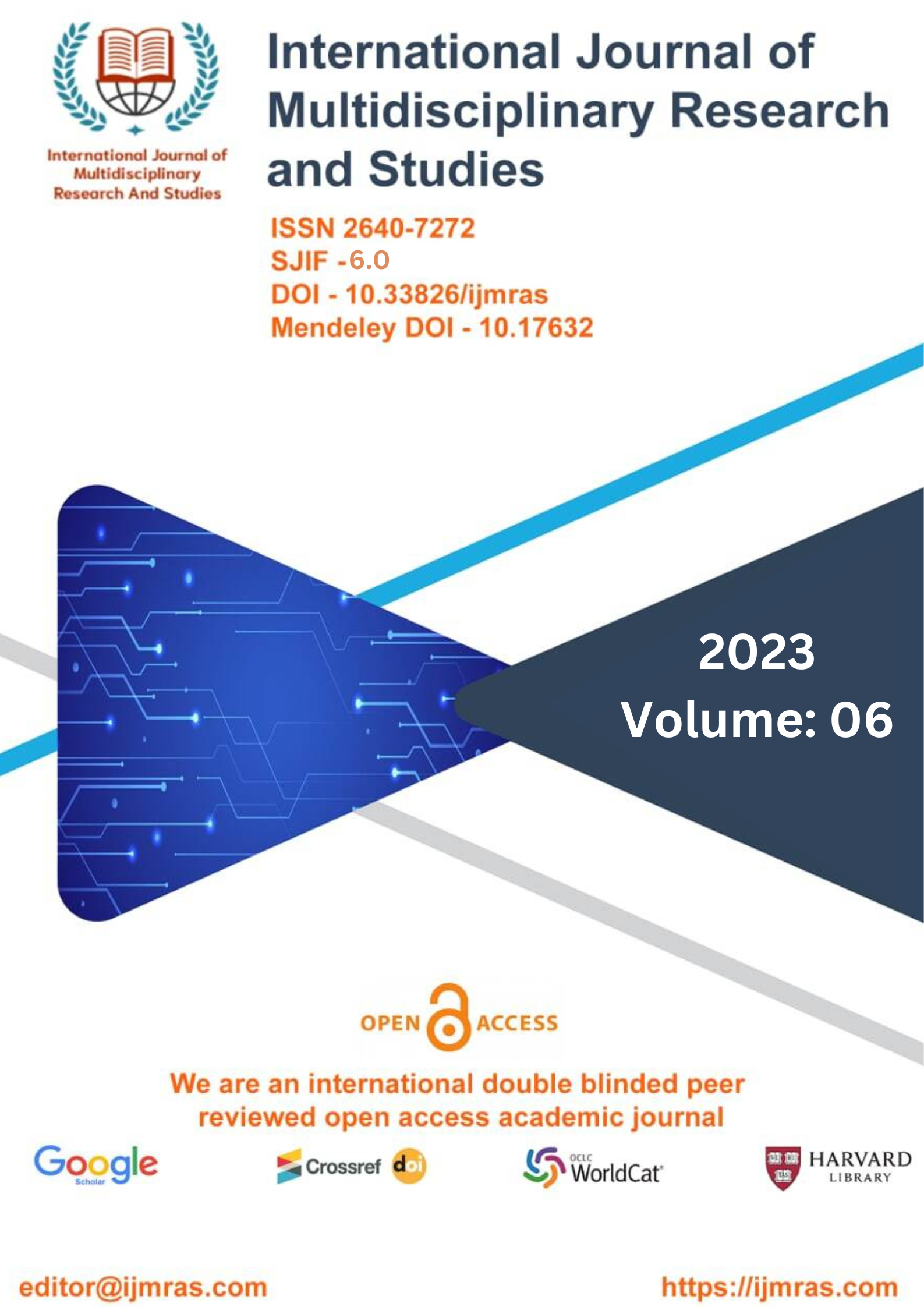College of education student Facebook posts’ creation: morphological transformation

Abstract
Language is a highly elaborated signaling system. It serves various functions in communication, it is used to share ideas, convey feelings and emotions, etc. This study focused on the social media posting morphology of college students who are now enrolled in the first semester of the Academic Year 2022-2023 and who also studying at Madridejos Community College. The researchers are interested in uncovering more about how people use language in terms of its variety and lexical in one of the popular social media networking platforms that we all know as Facebook. The study employs a qualitative method based on textual analysis and qualitative explanations based on commonly posted words found on Facebook. Several words written by college students specializing in Education have been posted on social media platforms like Facebook. Clearly, the morphological pattern of words is gradually routing, owning to new, emerging words that are clearly adapted and exploited by language users. Morphological processes included non-concatenative, incorporation, and suppletion, and morphological transformations included multiple processes.
Keywords
Education Students, Facebook Post, Language, Morphological processes, Morphological transformationHow to Cite
References
Gido, N., Canedo, M., & Oregines, Q. (2022). Morphological Transformation among Criminology Students’ Social Media Posts. Global Scientific Journals. Volume 10, Issue 3.
Cabantac-Lumabi, B. M. (2020) The Lexical Trend of Backward Speech among Filipino Millenials on Facebook. IJECLS. Far Eastern University-Manila, Philippines.
Jeresano, E. & Carretero, M. (2022) Digital Culture and Social Media Slang of Gen Z Sorsogon State University, Philippines.
Hashmi M. Mahmood, M., & Naz, T. (2019). Impact of Mass Media in the Use of English Slang Words shorts forms among Pakistan Students. JES.
Lihawa, K. (2020) Word Formation Process of Genz Slang in Callahan’s Generation Z Dictionary.
Mustafa (2015) An Analysis of Words Formation Process in Everyday Communication on Facebook.
Rustamaji (2015) Process of English Word Formation Found in Advertisement Boards in Kendal Regency.
Rabadi, R. (2019) Morphological Awareness and Vocabulary Knowledge among English Language Learners. Arab World English Journal (AWEJ) Volume 10. Number 3. Pp. 43-63. https://dx.doi.org/10.24093/awej/vol10no3.4
Sabine Arndt-Lappe (2018) Expanding the lexicon: Linguistic Innovation Morphological Productivity, and Ludicity.
Maghirang, T. (2019). Get ready for tech-savvy Gen Z! The Manila Times. Retrieved from https.//www.manilatimes.net/2019/03/24/business/sunday-business-i-t/get-ready-for-tech-savvy-gen-z/530014
Filipino Internet Slang Words (2021, May 9). https://thesmartlocal.ph/filipino-internet-slang/amp
The Philippine Daily Inquirer (2022, Dec. 30) A year in review: The memes that define 2022. https://pop.inquirer.net/338344/a-year-in-review-the-memes-that-define-2022/amp
Ruth, J. (2022). How is Social Media Changing the English Language? (Guest post). Exclusively for evolve. https://www.edvolvelearning.com/blog/how-is-social-media-changing-the-english-language-guest-post
Raodhatul A. P. & Ardi H. (2019). Word Formation of Slang World in Song Albums Created by Indonesian Rapper, Young Lex. E-Journal of English Language & Literature Volume 8. Number 3. http://ejournal.unp.ac.id/index.php/jell
Ibrahim, E., Kadhim, A., Mayuuf, H., and H. A. Haleem (2022). How Has COVID-19 Impacted Our Language Use? Int J Environ Res Public Health. https://www.ncbi.nlm.nih.gov/pmc/articles/PMC9656816/
Laksana, P. Y. & Boyce, G. (2020). A Morphological Study in Group Online Communication: Word - Formation Processes among College Students in a WhatsApp Group Article Info. Journal of Social Sciences and Humanities Volume 10, Number 2. ojs.pnb.ac.id/index.php/SOSHUM/
Yap, A. (2021) Morphological Process in FB. https://www.academia.edu/568331/Morphological_Processes_in_FB
Al-Salman, S. & Haider, A.S. (2021). COVID-19 Trending Neologisms and Word Formation Processes in English. Russian Journal of Linguistics. Volume 25. Number 1. https://journals.rudn.ru/linguistics/article/view/25996
Bria Homes (2022). The 6 Most Popular Filipino Internet Slangs of 2022. https://www.bria.com.ph/articles/the-6-most-popular-filipino-internet-slangs-of-2022/
Aglibot, S. (2023). 36+ Latest Trendy Tagalog Internet Slang Words. https://ling-app.com/fil/tagalog-internet-slang-words/
Quara (2018). Where did the Filipino term "Charot" come from? https://www.quora.com/Where-did-the-Filipino-term-Charot-come-from
Gime, A. & Macascas C. (2020). WikaGenZ: Bagong anyo ng Filipino slang sa Pilipinas.
International Journal of Research Studies in Education 2020. Volume 9. Number 3.
License
Copyright (c) 2023 LIGAYA A. BATIANCILA, MARIBEL M. MORADAS, CATHERINE R. OFQUERIA, 2/0 CARL JAY DIAMANTE OIC-NW4d, NATHANIEL G. GIDO, JOY MAE G. AMADEO

This work is licensed under a Creative Commons Attribution 4.0 International License.
Individual articles are published Open Access under the Creative Commons Licence: CC-BY 4.0.




